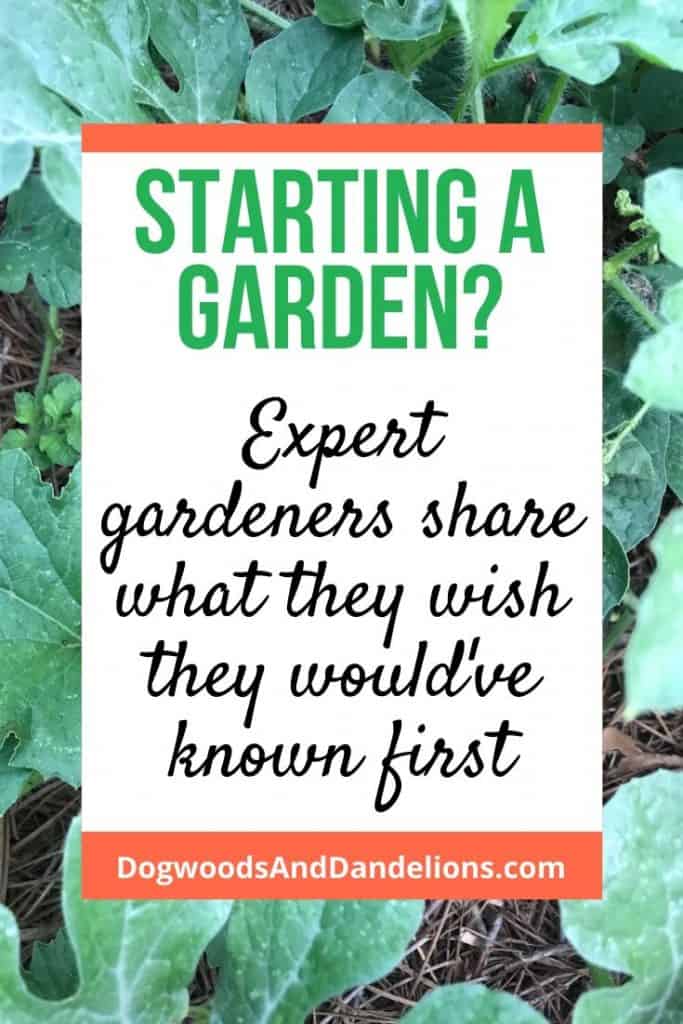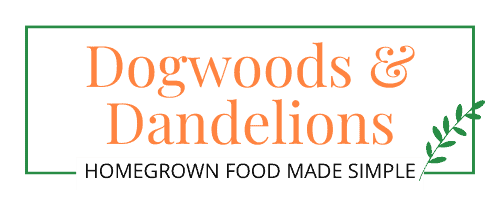Starting A Garden-Expert Advice from Experienced Gardeners
Preview: This post shares ideas from other gardeners about what they wish they would have known before starting a garden.
So you want to start a garden? Starting a garden can be intimidating, even overwhelming at times. I ask some of the best known bloggers and expert gardeners what was their biggest struggle when starting a garden. Below is what they shared.
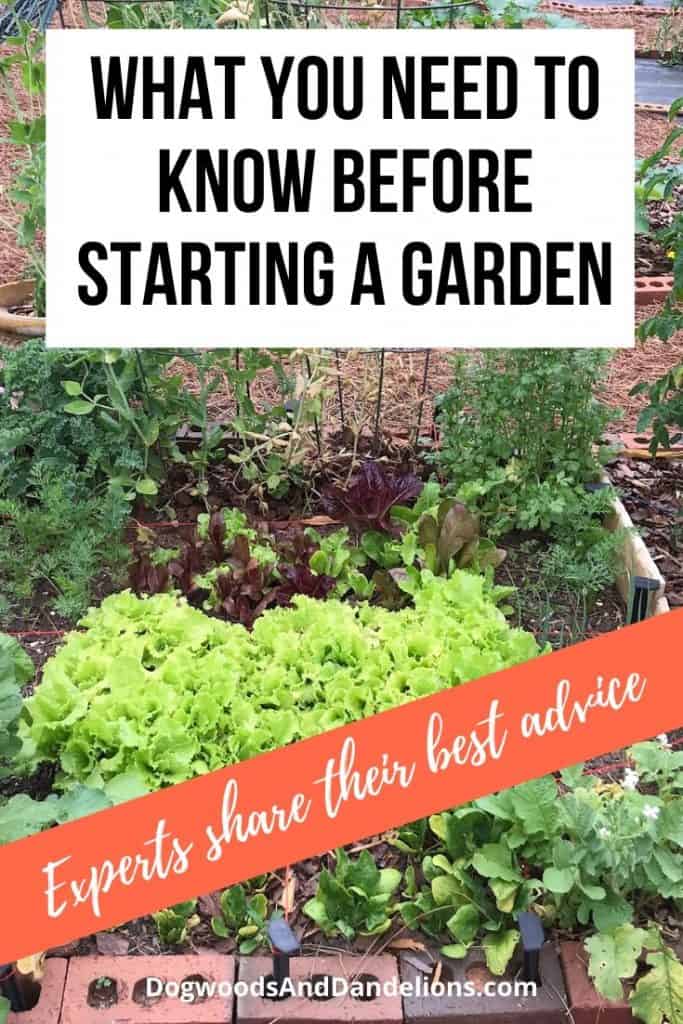
I ask my fellow gardeners to answer one of two questions:
1. What is the one thing you wish you would have known before starting your garden?
or
2. What would you have done differently to make starting a garden easier?
Here are their responses in (mostly) their own words.
Expert Advice for Starting A Garden?
Jill McSheehy from Journey with Jill
Failures are the best learning opportunities. When I started my first garden, I tried to learn everything I could so I would do everything “right.” Of course, we don’t want our entire gardens to be failures, but I’ve learned we have to be prepared for some things not to work out as planned. But instead of getting too down about this when it happens, I’ve learned to evaluate and search for the “why.” Even if I can’t always pinpoint the reason for a particular failure, I still learned something, and I can take that knowledge to adjust for the future.
My first big “failure” was losing my squash and zucchini plants to the squash vine borers. But through that failure, I learned to plant a late crop, because in my area it avoided the vine borer’s life cycle. Now, I plant an extra-early crop and a late summer crop, and instead of one harvest, I get two!
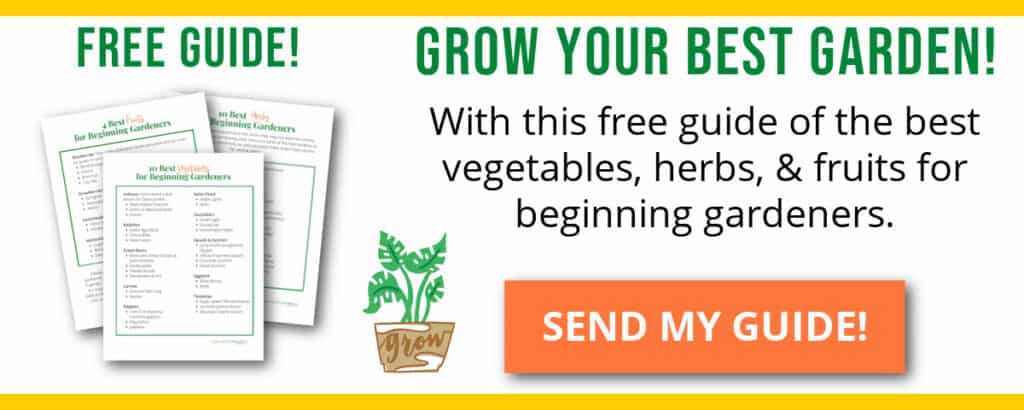
I tell beginners, don’t be so afraid to fail that you don’t try. It’s the lessons we learn through our failures that help us become better gardeners. (Note from me: YES, YES, YES! You will have failures. And sometimes, even if you do everything “right” you will still have crops that fail. Be prepared for it. And then learn from it!)
Another note from me: Jill has a fabulous podcast for beginning gardeners where she provides helpful gardening advice while explaining gardening terms in everyday words that you can understand. I think even experienced gardeners might learn a thing or two from Jill!
From Sarah J.
Sarah J. said before starting a garden she wished she would have known how much maintenance a garden requires. (Note from me: And while its true that maintaining a garden can be a lot of work, I’ve got lots of posts to make it easier. Check out How to Maintain a Garden While on Vacation, Types of Mulch to Use in Your Backyard Garden, and Gardening with Black Plastic.)
From Megan M.
Megan M. said that before she started gardening she wished she knew more about crop rotation and harvesting crops. She also wished she knew more about companion planting and soil preparation. (Note from me: Look for posts on companion planting coming soon.)
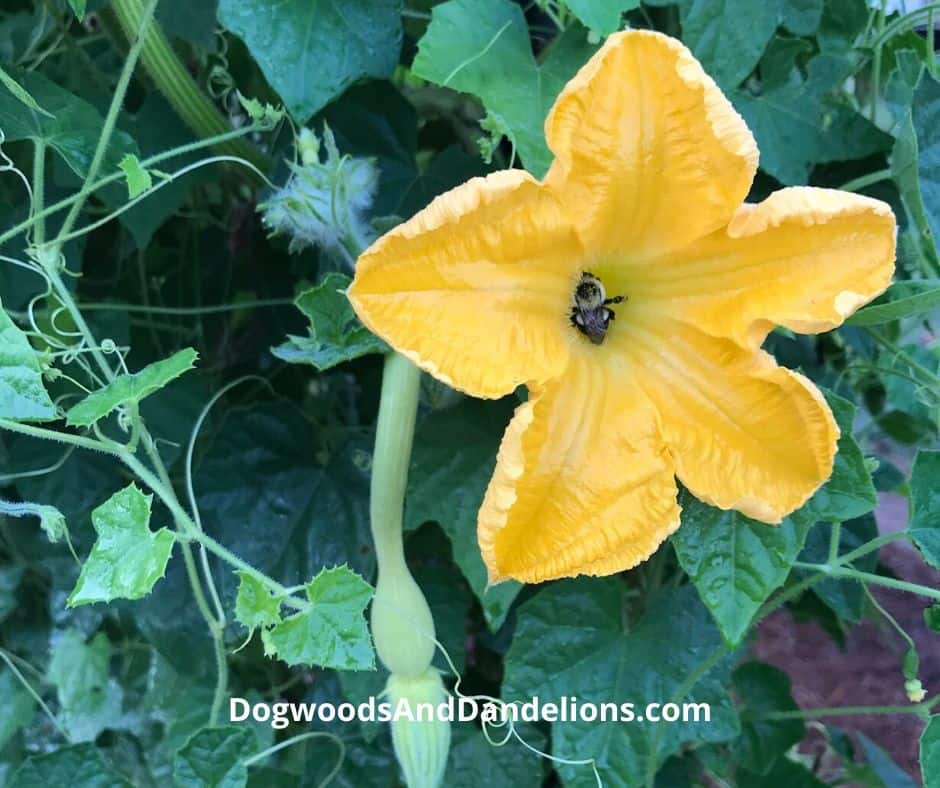
Jami Boys from An Oregon Cottage
“I wish more gardeners and books would talk about how long it takes to HARVEST everything you plant! We hear all the time about getting a garden ready, planting, weeding, and maintenance, but not the hours it takes to, say, pick blueberries from 12 plants. Yep, had I given more thought to that, I wouldn’t have planted 12! (In the end I had to call my extended family to come and help.)
Moral of the story – plant only what you can eat AND what you have time to harvest.” (Me again: I’ve been guilty of this too. If in doubt, plant less, not more! Also, don’t miss Jami’s post on 5 Easy Steps to Organic Weed Control. This revolutionized my garden!)
Also, totally not gardening related, but if you like making bread, her Whole Wheat Rolls are a must-try. Even if you think you don’t like whole wheat bread, these will change your mind!
Melissa Will from The Empress of Dirt
“If I was starting my current garden over again now, I would only plant in raised beds. My previous garden soil was pure clay and took years to turn into a thriving garden.
When we moved to our new home, I was deliriously happy to have sandy soil: soil I could actually get a shovel into. But, I now know that either extreme is a big problem. It’s so sandy everything washes away: compost, water, young plants—poof! Gone.
Knowing what I know now, 9 years later, I would first create raised beds for everything. That would allow me to build up and contain better soil on top of the sand and gradually make some headway.” (Note from me: I’ve got a post on raised beds if you need some ideas.)
“Every garden offers challenges, and I love the experience of gardening more than anything, but a choice like this would have been very practical and saved a lot of time, heartache, and money.”
Courtney Johnson from The Kitchen Garten
“I wish I would have known how to plan a garden. By thinking about what I wanted to grow and how much space I had, I would have avoided over spending on plants, seeds, etc.” Courtney wrote a great post on planning a vegetable garden. I hope you’ll check it out. (Note from me: If you want pre-made garden plans, I’ve got you covered too!)
Courtney also said “To make gardening easier, I would have carved out 10 minutes a day simply devoted to gardening. We began with a row garden in our backyard, so the weeds wouldn’t have gotten ahead of me if I had just spent those 10 minutes in the garden.” (Note from me: Yep, just 10 minutes a day will make a HUGE impact on your garden!)

Dawn from DawnJumper
Dawn says “I wish I had known how important soil preparation is to having a thriving, healthy garden. If I was starting all over, I’d have my soil tested and add the needed nutrients and soil amendments.” (Note from me: This post will explain how to take a soil test and improve your soil. )
Jill Winger From The Prairie Homestead
I would definitely pay more attention to the things I was adding to my garden! A year or two into my first garden, I used horse manure that hadn’t been composted properly, which subsequently seeded my garden with a literal lawn of grass.
And apparently, I’m a slow learner, because several years later, I used herbicide-tainted mulch in my garden, which affected my soil and ruined my crops that year. (Note from me: You can read her article about that here.) These days, I’m very careful with everything I add into my garden plot to make sure it’s extremely clean and safe.
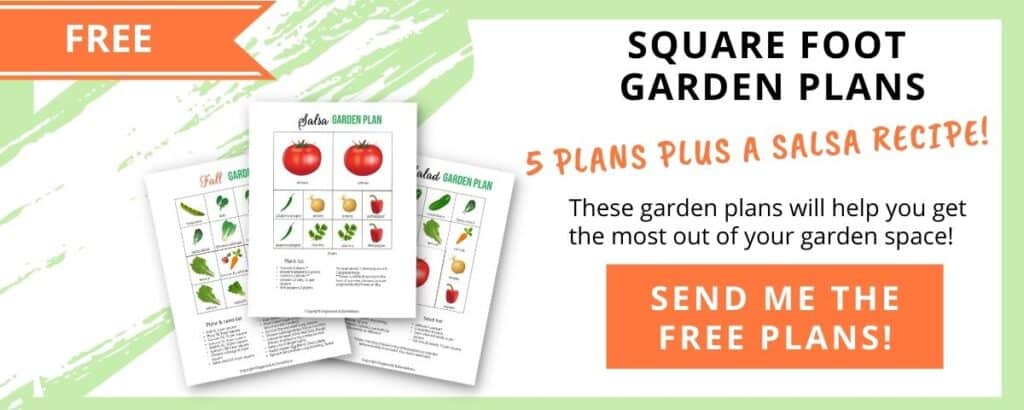
Julie Gropp From Real Food Homestead
When I started gardening, I dove in head first. I built 12 raised beds and filled them with everything I could think of. Now I know that when starting your first garden, you should start small the first year.
Find a small area of your yard to either plant directly into the ground or build 1 or 2 raised beds. Then plant 3 or 4 kinds of vegetables, preferably things your family already likes to eat. This will help you ease into the gardening process without getting overwhelmed.
My Own Advice
My own advice closely mirrors Julie’s above. – Start Small. Since this was echoed by several others too, I really think this may be the most important piece of advice for starting a new garden.
Don’t plan to try to grow everything your first year. It’s so easy to get excited and go overboard. Plus planting is the easy part. I don’t want you to get so overwhelmed the first year that you give up. I would rather you grow just one tomato plant every year than grow a huge garden one year and nothing the next. And by starting small, I recommend either a 4′ x 4′ raised bed or a few containers.
Thank You!
I want to take a minute to thank all the gardeners who took the time to respond to my request for help. I truly appreciate every one who helped.
And to my readers: I hope you will take a minute to check out a few of these other gardening/homesteading blogs too. You never know what you might learn!
Do You Have Any Advice?
If you have any advice for starting a garden, I would love for you to leave a comment. Gardening is one of those things that seems to work best when knowledge is freely shared. And whether this is our first garden or our 50th garden, we all have learned something from growing a few veggies, herbs, or flowers.
Related Posts
- Fast growing vegetables to plant for a quick harvest.
- The benefits to growing a garden in raised beds.
- Here are 8 reasons you really should grow a (small) garden.
